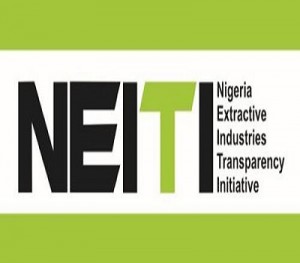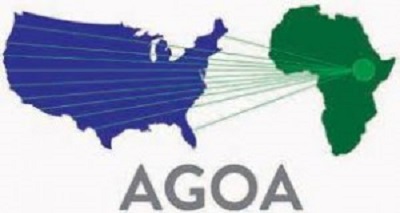A Multi-Dimensional Approach To Combating Oil Theft And Illegal Refining
 During a multi-stakeholders forum organized by CORDAID on oil theft and illegal refineries Director, Communications at the Nigeria Extractive Industries Transparency Initiative (NEITI), Dr. Orji Ogbonnaya Orji, expounded on how a multi-dimensional approach could be deployed to curb oil theft and illegal refining.
During a multi-stakeholders forum organized by CORDAID on oil theft and illegal refineries Director, Communications at the Nigeria Extractive Industries Transparency Initiative (NEITI), Dr. Orji Ogbonnaya Orji, expounded on how a multi-dimensional approach could be deployed to curb oil theft and illegal refining.
NEITI’s role has been to draw national and international attention to the negative economic consequences of oil theft, illegal bunkering, and illegal refineries. NEITI is equally concerned over its negative impacts on the host communities, the environment and national security.
That Nigeria is abundantly blessed with natural resources is no longer news. What is news and shocking to the rest of the world is the impunity with which we have squandered the revenues from these natural resources especially oil, gas and mining. We have equally mismanaged the attended opportunities that resource rich nations in the developed world have explored fully for the benefit of their citizens. Nigeria’s classification as a country deeply afflicted with the resource- curse syndrome is based on the paradox of poverty, ignorance, misery in the midst of plenty. In our current situation, this has led to resource based conflicts in the Niger Delta, strife and political instability as witnessed recently in other countries such as Rwanda, Liberia, Sierra lone, Congo, Sudan etc. Oil theft is another dimension to Resource Curse which our country is battling with.
Oil Theft and Illegal Bunkering Oil theft, also known as illegal bunkering, is the act of hacking into pipelines to steal crude which is later refined with the help of illegal refineries. The illegally refined products are usually sold both locally and in the international market (Ugwuanyi, 2013).
Oil theft therefore constitutes any activity relating to the theft or sabotage of crude oil, the facilities or installations, pipeline vandalism, fuel scooping, illegal refining, etc. Illegal oil bunkering is the most commonly known form of oil theft.
It is an illicit trade that involves the stealing of crude oil and its derivative products through a variety of mechanisms. Oil bunkering which is a necessity for maritime shipping becomes illegal when it is carried out without requisite statutory licenses, valid documents or in violation of the rules and regulations of the Nigerian maritime authorities. Oil theft occurs in three categories:
• Small scale pilfering of condensate and petroleum products destined for local markets.
• Large scale theft of crude oil involving international maritime tankers and transported to the international market.
• Excess lifting of crude oil beyond the licensed quantity.
Impacts on the Nigerian State
Before NEITI’s audit of the oil and gas sector, the actual cost implications to the nation were based on speculations and estimates. For instance, former Group Managing Director of the Nigeria National Petroleum Corporation (NNPC), Mr. Andrew Yakubu estimated the losses at about $12 billion annually. The immediate past Minister of Finance, Dr. Ngozi Okonjo-Iweala put the figure of oil theft and illegal bunkering at 400,000 barrels per day.One of the international oil companies and a Joint Venture Operator estimated its own loss to be between 150,000 and 180,000 barrels per day.
It is important to note that much of the oil bunkered illegally is destined for the international market. However, other products such as condensates and refined petroleum are sold locally. A growing number of oil spills are now caused by people who hack into the pipelines to siphon crude oil either for sale to international buyers or for processing in one of the many illegal artisanal refineries scattered around the Niger Delta region.
As we are all aware, oil theft does not just happen, it is caused. The causes of oil theft include lucrative black market, collusion with security agents, bribery and corruption, incentives for foreign buyers of stolen crude, inadequate funding to combat crude oil theft, lack of national consensus and the poor attitude to management of our collective national assets.
NEITI’s Interest in Oil Theft
NEITI as an Agency set up by law to enthrone transparency, accountability and prudent management of revenues from the nation’s natural resources has legitimate interest in the issue of oil theft because of its negative implications and huge revenue loss to the Federation, among other vices.
In line with its mandate, NEITI added request for information on oil theft and illegal bunkering in its audit templates of the oil and gas sector for the period 2009 to 2012. The goal was to establish the accurate quantity of crude oil stolen and the revenue losses to the economy. This initial audit was limited to three Joint Venture Partners (International Oil Companies) whose operations suffer the most impact. They are Shell Petroleum Development Corporation, Chevron and Nigeria Agip Oil.
From the Audit, the oil theft and sabotage during the period of 2012 was one hundred and thirty six million barrels (136 million bbls) valued at Eleven Billion Dollars ($11 billion) using the conversion rate of ₦158 to 1 USD as at the time of computation. For the years 2009 to 2011, Nigeria lost the sum of ₦1.737trillion to crude oil theft and sabotage. The loss was put at ₦579 billion annually. The problem was more than many Nigerians ever imagined.
On domestic crude allocation and management, the 2012 NEITI Audit report recorded that PPMC pumped 33.4 million barrels of crude oil to the refineries. Out of this quantity, the actual quantity received by the refineries was 30.4 million barrels, leaving a difference of 3 million barrels valued at about $351 Million. PPMC attributed this loss to crude oil theft and pipeline vandalism.
In the light of the challenges posed by oil theft to our economy and national security, NEITI gave some specific recommendations as follows:
Installation of fiscalised crude oil metering infrastructure
NEITI is also concerned that the Nigerian state does not even know how much crude oil it actually produces and the quantity of crude stolen daily. This is because the measurement of crude oil production is grossly inadequate. Information of crude oil production from the well head, through the flow station to the terminal is not reliable and this is where the major oil theft takes place. Through its regular audit reports, NEITI has consistently recommended the installation of a robust metering infrastructure both at the flow stations and the terminals in line with international best practices. When metering infrastructure is installed at the flow station, it becomes the responsibility of the Joint Venture Partners to bear a significant economic burden to ensure that the oil is policed safely to the export terminal. This is one of the ways to combat oil theft.
Finger-printing of crude oil to identify its originating field
This is technology driven and involves a combination of capillary chromatography with mass spectrometry and is only possible at a global level. NEITI strongly recommends that this should be explored no matter the complexity.
Community involvement in protection of Government facilities and installations
Host communities and the civil society should be involved in the drafting of some of the contracts that allow for the exploration and production of crude oil in their localities. This gives them a sense of belonging and ownership to protect oil installations that pass through their communities. Often, many of the communities lack information about the industry, the contracts, laws, regulations and the potential impacts of the industry on their environment, economy and culture. Building their capacity and meeting their information needs creates the opportunities for them to see themselves as beneficiaries who are central to the preservation and protection of the installations in their localities.
Multi-Stakeholders Approach to Combating Oil Theft and Illegal Bunkering Combating illegal oil bunkering and theft requires a multi-stakeholders’ approach and collaboration. The oil companies, communities, government, security agencies as well as the international community must provide adequate response to the increasing rate of crude oil theft by mobilizing and organizing themselves to police and protect the installations in a collaborative manner. NEITI has on several occasions, called for a specific law with stringent sanctions and penalties against illegal oil bunkering, oil theft, illegal refineries and pipeline vandalism.
We are encouraged that the issue of oil theft is now being addressed as part of the on-going reforms of the sector as largely contained in various NEITI reports.







